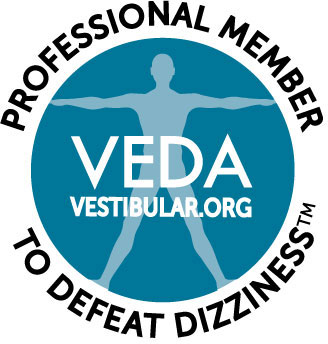Dr. Debby and I were having an interesting discussion yesterday about how many people are taking some type of anti-anxiety medication. Lately, I’ve even seen a rise in the number of teens on these meds. Our American culture is always looking for a quick fix, and it usually comes in the form of a pill. Unfortunately, this mindset all too often leads to the overuse of prescription medications, whether they be anxiety meds or antibiotics. In fact, many of the most frequent television ads you see today are for a medication.

Understanding Vision-Related Anxiety
Anxiety is an extremely common occurrence we hear about often in our line of work. Although there are many causes for it that aren’t related to the visual system, anxiety is a feeling experienced quite frequently by our patients with vertical heterophoria. They can feel anxious in malls, big box stores, supermarkets and cars, to name just a few places. Picture this: you love shopping, and the mall is one of your favorite shopping destinations. One day, out of nowhere, the world suddenly starts spinning around you. The long, too-brightly-lit walkways teeming with relentless waves of busy shoppers suddenly start to close in on you. The sounds of heels clicking, feet pounding, babies crying and people talking assault your senses, causing you to turn away from and avoid an activity you used to find fun and enjoyable. Would you feel safe or stable in this situation? Of course not! You’re going to have anxiety. Makes sense, doesn’t it?
No Pills, Just Prism
Many patients who experience these ongoing feelings of stress and anxiety are put on medication simply because their doctors don’t know how else to deal with their symptoms. This can make the problem worse for people with VH, because these medications can affect the eye muscles that are already malfunctioning. Fortunately, there’s a fix in the case of those suffering from vertical heterophoria: aligning lenses. A simple pair of aligning glasses with specialty lenses is, in many cases, all it takes to correct vision misalignments like VH. Then, when the visual system is functioning properly again and the dizziness and spinning sensations go away, the anxiety is also relieved, and patients are able to get back to doing the things they love without anxiety. Just like that, the problem is solved – no pills necessary.
Does this example of vision-related anxiety ring a bell? Do you have a friend or loved one who displays similar symptoms of anxiety? If so, please share what you’ve learned with them. It may be the key to helping them receive relief, not only from their symptoms, but also from becoming dependent on pills that may or may not work. For further information or to find out if you yourself might have binocular vision dysfunction, contact the Neuro Visual Center of New York by calling (516) 224-4888.





